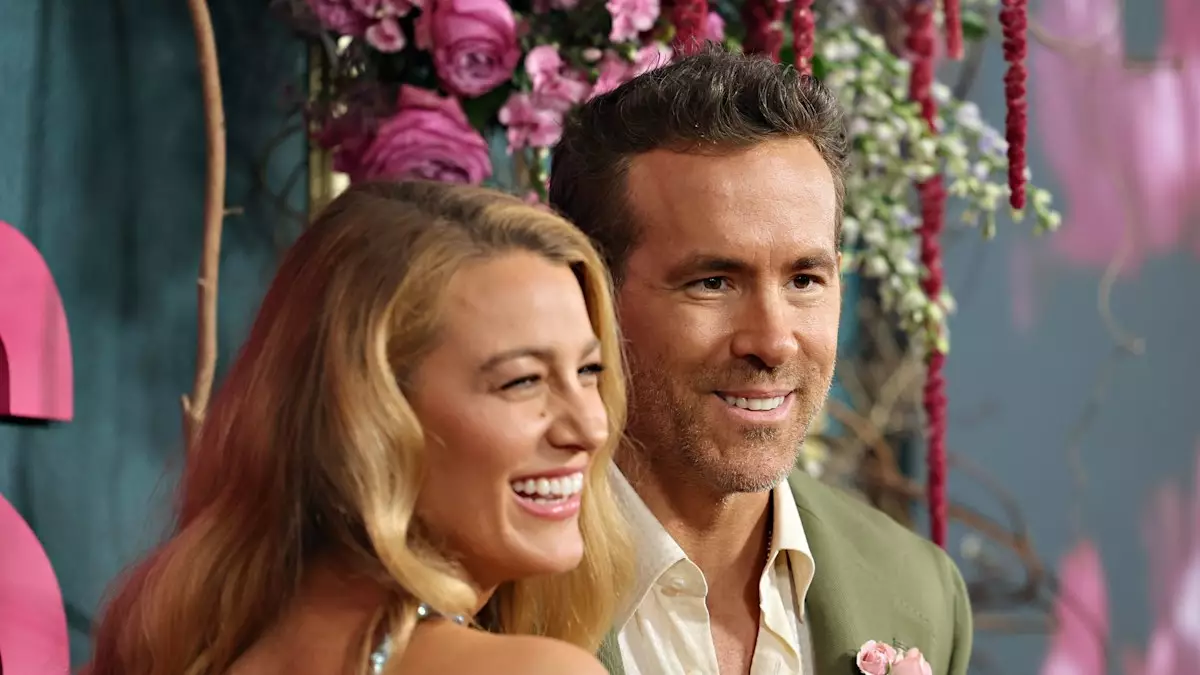The entertainment industry is frequently a landscape of spectacle and drama, but the recent events surrounding Blake Lively, Ryan Reynolds, and Justin Baldoni have captivated audiences for more than just their star power. Amid escalating media coverage regarding serious allegations of sexual misconduct against Baldoni, who stars alongside Lively in the film “It Ends With Us,” Reynolds has stepped into a spotlight of his own, exemplifying the dual nature of celebrity life—one fraught with personal challenges and the other driven by philanthropy.
Blake Lively’s lawsuit against Baldoni has claimed not only sexual misconduct but also an attempt to harm her reputation. Such allegations bring to light the often-opaque realities behind the scenes in Hollywood, revealing why public figures sometimes prefer to remain silent in the face of controversy. Lively, 37, has been at the center of strong support from her co-stars, which signifies a collective effort in addressing the culture of silence surrounding misconduct in the industry. This societal backdrop undoubtedly places immense pressure on individuals who have experienced similar situations, stirring both sympathy and outrage among the public.
In the midst of this unfolding drama, many have turned their attention to Reynolds, who was included in discussions relating to the allegations made by Lively against Baldoni. This association has thrust him into a complicated narrative, as he balances support for his wife and navigating the professional implications of the lawsuit’s revelations.
Amid the personal turbulence, Reynolds has chosen to pivot his focus toward charitable endeavors, specifically raising funds for SickKids, a foundation dedicated to the health and well-being of children. By reconnecting with his iconic character, Deadpool, Reynolds creates a juxtaposition between lightheartedness and somber reality. The video featuring his daughter clad in a similar costume provides a stark reminder of both the joy and gravity of familial bonds during troubling times.
Reynolds’ heartfelt message on social media speaks volumes about his commitment to supporting children in need. His willingness to match donations up to $500,000 is a clear demonstration not only of his passion for social causes but also his character as a husband aiming to keep his family grounded amidst chaos. The mention of his daughter’s involvement adds a personal touch to a larger narrative, reminding viewers that even superheroes (or those portraying them) deal with the complexities of real-life situations.
The Ripple Effect of Allegations and Support
In the wake of Lively’s lawsuit, a notable ripple effect has emerged within the entertainment community. Numerous figures have voiced their support for her, including her former co-stars from “The Sisterhood of the Traveling Pants” and her colleagues from “It Ends With Us.” The support she is receiving indicates an industry striving for accountability and a shift away from silence surrounding misconduct. This collective voice may potentially alter the dynamic in Hollywood, where allegations often go unchallenged.
Even figures such as Colleen Hoover, the author of the book that inspired the film, have been drawn into the conversation, showcasing how intertwined the lives of artists can become. The challenge now lies in how the community will maintain its momentum in advocating for a safer, more transparent environment for all involved.
The dual narratives of Lively’s legal struggle and Reynolds’ philanthropic initiatives underscore the complexities inherent in celebrity life. While grappling with personal turmoil, Reynolds opts to channel his energy towards a noble cause, portraying an encouraging model for handling adversity. Meanwhile, the growing public dialogue around Lively’s allegations provides a necessary platform for discussion regarding harassment and misconduct, pushing towards a more respectful and equitable entertainment industry.
As Lively’s situations continue to unfold, coupled with the ongoing support from loved ones and colleagues, it serves as a poignant reminder that the entertainment industry is not just a world of glamour and fame but also one where human experiences—both joyful and painful—remain central to its narrative fabric. The emerging details surrounding this saga highlight the importance of support networks, accountability, and the power of communication in catalyzing change.

